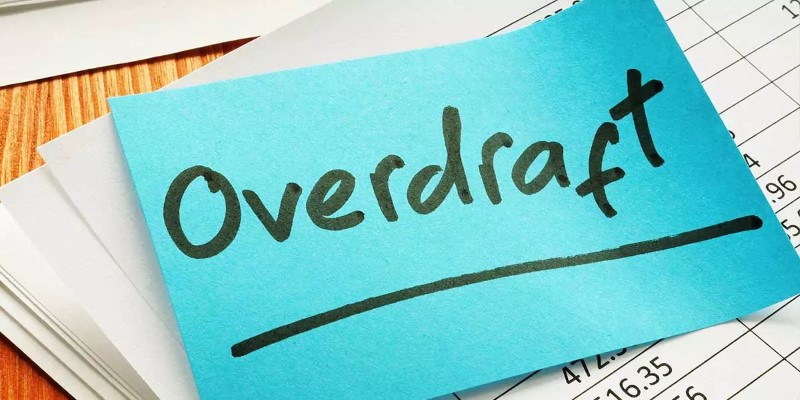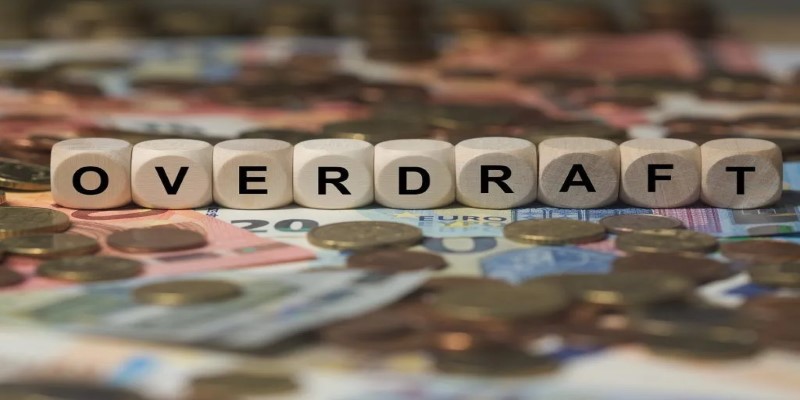Advertisement
When it comes to managing your finances, one common question many people have is whether using an overdraft impacts their credit score. Overdrafts are a feature provided by many banks to allow you to withdraw more money than whats available in your account, but this convenience can come with risks. Understanding how overdrafts affect your credit score is crucial for maintaining healthy financial habits.

In this article, well break down exactly what happens when you use an overdraft, how it can influence your credit, and what steps you can take to ensure your financial future stays on track.
An overdraft allows you to continue spending even when the balance in your checking drops below zero. In principle, your bank is giving you temporary access to extra cash to cover purchases, presumably up to a pre-determined limit. It certainly seems like a helpful way to have a financial safety net in times of distress, but it is nice to understand the mechanics involved and the consequences of applying for an overdraft.
There are two main types of overdrafts:
Authorized Overdraft: This is where the bank has agreed beforehand to allow you to spend more than what is in your account, often with a fee or interest charge attached.

Unapproved Overdraft: It is a situation where you overdraft your account balance without having a prior agreement with your bank. Most overdrafts attract more fees and have a larger effect on your credit rating.
Using an overdraft is not bad in itself, but how you handle it can really make a difference to your credit. What determines whether or not an overdraft hurts your credit score is actually how the bank reports it to the credit bureaus.

The short answer is that it can, but it depends on a few factors. When you use an overdraft, the most important aspect that influences your credit score is whether the bank reports your account behavior to the credit bureaus.
Banks typically report information about overdrafts to credit agencies, especially if the overdraft is not repaid in a timely manner or if it turns into a more serious issue like a default or collection. These negative marks can decrease your credit score, making it more difficult to obtain loans, mortgages, or other financial products in the future.
Heres how overdrafts can affect your credit score:
Timely Repayment: If you use an overdraft and repay the amount within the agreed time frame, it generally wont have any impact on your credit score. However, even if the bank doesnt report it directly to the credit bureaus, frequent overdraft use may signal financial instability, which could indirectly affect your creditworthiness.
Missed Payments: If you fail to repay the overdraft, your bank might report it as a missed payment. This can hurt your credit score and make future borrowing more difficult. In extreme cases, if the overdraft remains unpaid for an extended period, the bank may send your account to collections, which can seriously damage your credit score.
Overdraft Limits and Utilization: Just like credit cards, frequently using a large portion of your overdraft limit can be seen as a sign of financial stress, even if it's within the bank's agreed terms. If you consistently max out your overdraft, it can reflect poorly on your credit report.
It's important to note that while both overdrafts and credit cards offer a form of credit, they are treated differently by credit bureaus. Credit cards typically have a direct and clear impact on your credit score due to the way they report usage, payments, and balances. However, overdrafts can have more subtle effects, especially if they are managed well.
The key difference lies in how the two are used. Credit cards are revolving credit, meaning you can carry a balance over time. If you dont pay the balance in full, youre charged interest, and if your payments are late, its reported to credit bureaus. Overdrafts, however, are typically not as visible unless theres a major issue like missed payments or exceeding the limit.
Another important distinction is the impact of utilizing the overdraft regularly. While credit card companies may not penalize you for using a small percentage of your credit limit, using a large portion of your overdraft limit frequently might lead to higher interest charges or additional fees.
Stay Within Your Overdraft Limit: Try to avoid maxing out your overdraft. Its better to use it sparingly and ensure that you never exceed the agreed limit. This will help keep your credit report in good standing.
Repay Overdrafts Promptly: If you do end up using an overdraft, pay it off as soon as possible. The sooner you clear the balance, the less likely it is to affect your credit score.
Monitor Your Bank Statements: Regularly checking your bank statements can help you spot any potential issues before they escalate. If you notice that youre frequently dipping into your overdraft, it may be a sign that your finances need a closer look.
Communicate with Your Bank: If youre having trouble repaying your overdraft, reach out to your bank to discuss your options. Some banks offer repayment plans, and being proactive can help prevent further damage to your credit score.
Consider Alternative Options: If you find yourself relying heavily on your overdraft, it might be time to consider alternatives, such as setting up an emergency savings fund or looking into other credit options that might offer better terms.
An overdraft can affect your credit score if its not managed carefully. While a well-managed overdraft with timely repayment might not have any significant impact on your credit score, failing to repay it or consistently relying on it could harm your financial reputation. The best way to protect your credit score is by using overdrafts responsibly, keeping track of your spending, and paying off any balances as quickly as possible.
Advertisement

By Christin Shatzman/Mar 16, 2025

By Nancy Miller/Jan 01, 2024

By Elena Davis/Jan 14, 2025

By Maurice Oliver/Mar 18, 2025

By Nancy Miller/Nov 09, 2024

By Kristina Cappetta/Jan 08, 2025

By Celia Shatzman/Mar 18, 2025

By Jennifer Redmond/Jan 14, 2025

By Susan Kelly/Dec 21, 2024

By Sean William/Mar 16, 2025

By Pamela Andrew/Dec 21, 2024

By Celia Shatzman/Mar 18, 2025